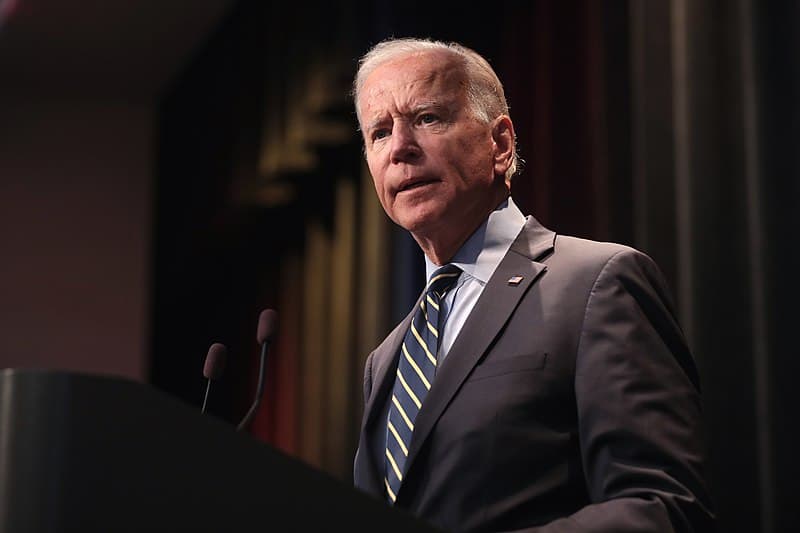
Rund Khayyat is a student at Harvard Law School.
The Biden administration is notifying states today that they may no longer require Medicaid recipients to work as a condition of enrollment in the low-income health care program. The move will help dismantle a contentious Trump-era policy that threatened coverage for thousands of Americans and drew rebuke from Democrats.
The Trump administration in 2018 had invited states to implement Medicaid work schemes for federal approval, such as those requiring beneficiaries to work, volunteer, or take classes for 20 or more hours a week. By the time a judge blocked the requirements a few months later, 18,000 Americans had already lost coverage. According to internal documents obtained by Politico, ten GOP-led states applied and received approval for their work rules, and several others submitted rule proposals before Trump left office. Lower courts have so far responded by striking down state attempts to institute the work schemes, and the Supreme Court was slated to consider their validity on March 29.
President Biden has long signaled his plans to unravel the work requirements, which Democrats have criticized as unlawful and aimed at kicking people off of the program. The internal documents cited the pandemic as a key reason for the Biden administration’s rollback, stressing that the pandemic only exacerbates the consequences of losing health coverage for Medicaid beneficiaries.
Over in the House, Speaker Pelosi reiterated Thursday that the $15 federal minimum wage will remain part of the $1.9 trillion coronavirus aid package, which the chamber plans to send to the Senate by the end of the month. Pelosi’s statement comes a week after the Congressional Budget Office (CBO) released a report analyzing the impact of the minimum wage hike, and after the Senate voted on a non-binding agreement to prohibit the wage increase during the pandemic. Critics of the $15 wage have cited the CBO’s conclusion that the wage increase would cause job losses for 1.4 million workers (though, as Courtney previously discussed, it would also increase wages for 27 million workers, lift 900,000 Americans out of poverty, and increase worker cumulative pay by $333 billion).
Despite the Senate resistance, House Democrats have pushed to keep the wage hike in their version of the legislation, which they plan to pass through a budget reconciliation process that doesn’t require any Republican support. It remains unclear if Democrats will succeed — the budget reconciliation process only applies to legislation that has a “direct impact on the federal budget” and it is unclear if the minimum wage would meet that requirement. If not, Democrats would need 50 votes to pass the wage increase (with Harris casting the tie breaking vote), and thus far, Sen. Manchin (D- WV), has indicated he would not support a $15 hike, but may support a lower threshold.
Finally, a Senate Committee voted Thursday to move forward with the nomination of Marty Walsh, a former union worker and mayor of Boston, to serve as U.S. Labor Secretary. Walsh’s nomination will now come before the full Senate, where it is expected to receive enough votes to assume the cabinet post.
Walsh’s Committee approval is significant because Republicans had previously indicated that Walsh was too “pro-labor.” At Walsh’s nomination hearing on Feb. 4, about which Maxwell reported, Senators questioned Walsh’s support for labor-friendly policies like the Protecting the Right to Organize Act, which would overhaul federal labor law; the $15 federal minimum wage; and the removal of laws that bar unions from collecting dues or agency fees from nonmembers. But on Thursday, Senator Burr, the highest ranking Republican on the Senate Health, Education, Labor and Pensions Committee, voted to advance the nomination, stating he was confident that Walsh would work collaboratively with Republicans on key policy disagreements.
Walsh’s nomination will be critical to helping the DOL make a pro-labor shift, which is particularly important as workers face continued threats during the pandemic. Democrats and union leaders have overwhelmingly supported Walsh, frequently highlighting his background as the two-term mayor and leader of Boston’s Building and Construction Trades Council, which represents 35,000 working families in the Boston region. Supporters say Walsh will work quickly to keep workers safe, to defend and expand workers rights, and to push for pro-worker economic reform.






Daily News & Commentary
Start your day with our roundup of the latest labor developments. See all
February 6
The California Supreme Court rules on an arbitration agreement, Trump administration announces new rule on civil service protections, and states modify affirmative action requirements
February 5
Minnesota schools and teachers sue to limit ICE presence near schools; labor leaders call on Newsom to protect workers from AI; UAW and Volkswagen reach a tentative agreement.
February 4
Lawsuit challenges Trump Gold Card; insurance coverage of fertility services; moratorium on layoffs for federal workers extended
February 3
In today’s news and commentary, Bloomberg reports on a drop in unionization, Starbucks challenges an NLRB ruling, and a federal judge blocks DHS termination of protections for Haitian migrants. Volatile economic conditions and a shifting political climate drove new union membership sharply lower in 2025, according to a Bloomberg Law report analyzing trends in labor […]
February 2
Amazon announces layoffs; Trump picks BLS commissioner; DOL authorizes supplemental H-2B visas.
February 1
The moratorium blocking the Trump Administration from implementing Reductions in Force (RIFs) against federal workers expires, and workers throughout the country protest to defund ICE.